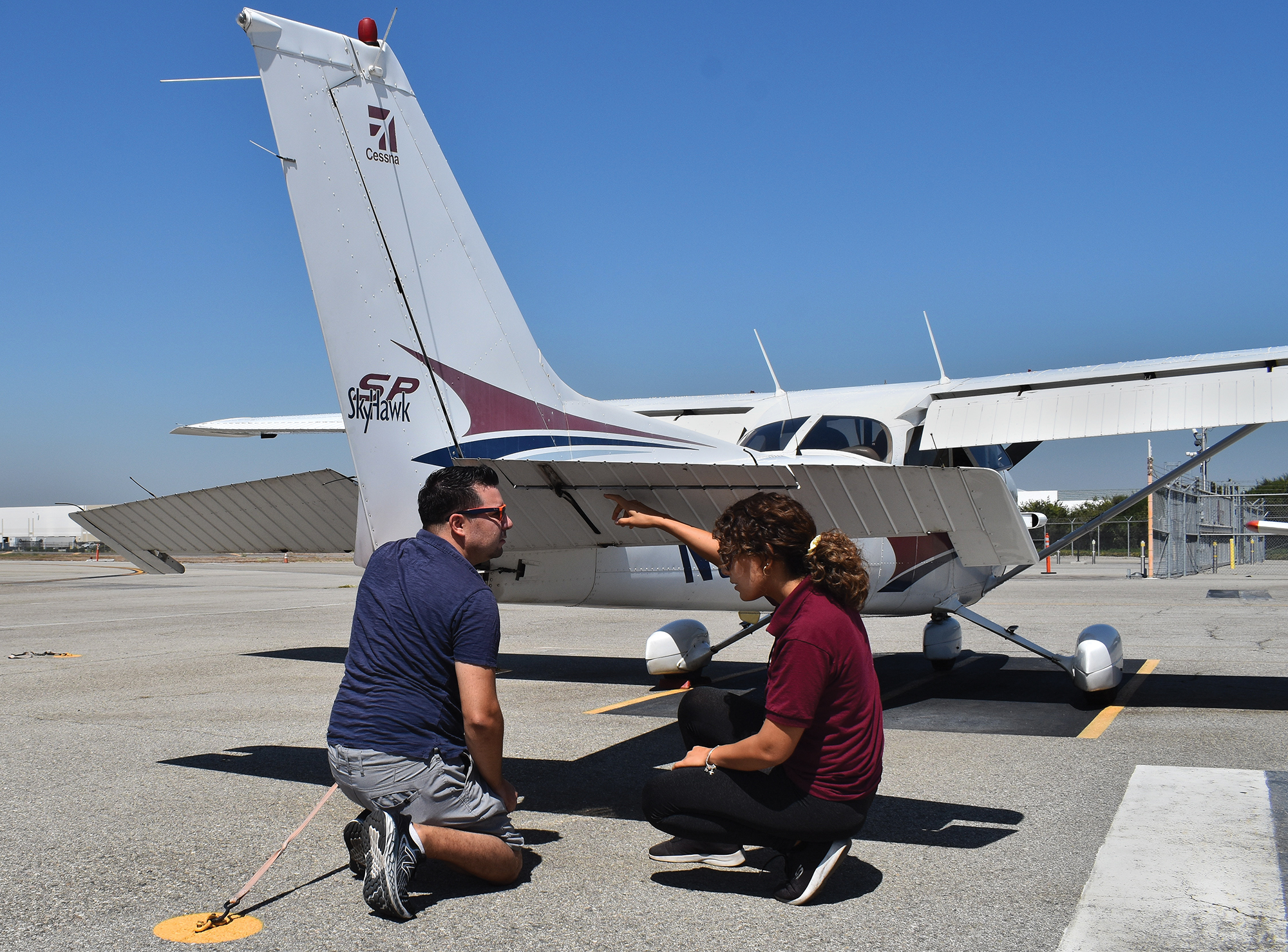Long Beach could look at incentives to help speed up a transition to unleaded fuels for smaller aircraft operating out of its airport as federal regulators take steps to phase out its use completely.
Leaded fuel is used in smaller piston-engine planes like Cessnas and Pipers and its exhaust has been tied to children living near airports having elevated levels of lead in their blood, which can cause a variety of health issues including brain or nervous system damage and developmental issues.
The use of leaded fuel was prohibited in vehicles in the early 1990s but is still allowed in small aircraft because it helps prevent in-flight issues like sudden engine failure and knocking. Larger commercial planes do not use leaded fuel.
While there is a public-private push to end its use by 2030, some cities have turned to incentives to get pilots to switch to unleaded fuels in advance of it being phased out. Councilmember Rex Richardson asked Tuesday for the city to look into options that could help pilots flying out of Long Beach make the switch.
“I love our airport, it’s a good airport but that’s something we need to be proactive about addressing,” Richardson said of the use of leaded fuel.
A 2014 settlement with 30 fuel providers, including two at Long Beach Airport, required them to begin to transition over to safer alternatives for aviation fuel. Long Beach was identified as one of the country’s top polluters in the state by the Environmental Protection Agency
The airport sits in the middle of multiple neighborhoods in East Long Beach, Lakewood, Signal Hill and California Heights, and the potentially affected areas include multiple schools.
Lori Shepler, who has two children who attend Carver Elementary School, said it’s “almost criminal” that leaded fuel has been allowed to be used for so long.
“I think it should be outright banned,” Shepler said.
Long Beach could look to other cities for ideas on how to speed up the transition locally.
Earlier this year, the Van Nuys Airport announced it would discount unleaded fuel by 11 cents per gallon by foregoing fees.
But incentives are only part of the issue. Switching from leaded to unleaded fuel might also require new storage tanks and other infrastructure at the airport. Some planes might have to be modified so they can use unleaded fuel. Producing unleaded aviation fuel at scale and having it certified by federal agencies is also an obstacle.
Because Long Beach lacks the authority to regulate what kind of fuel is used at the airport, it can only offer incentives to switch as it waits for federal regulators to act. The EPA and the Federal Aviation Administration have signaled that they could issue a determination on the future of leaded aviation fuel at some point next year.

